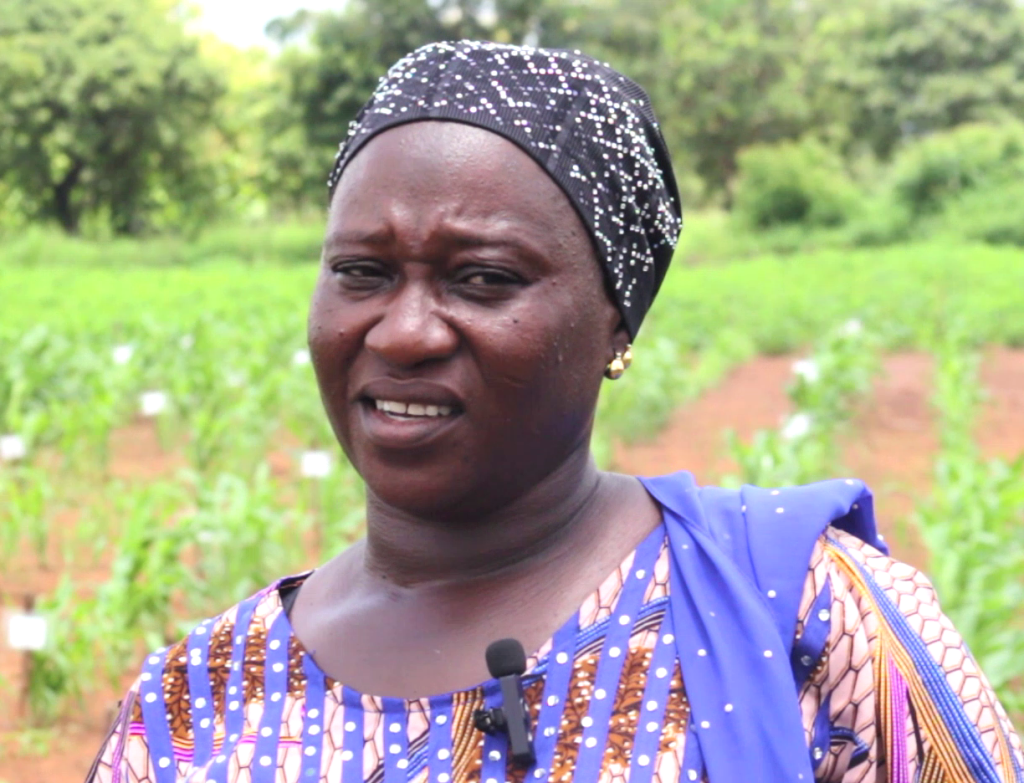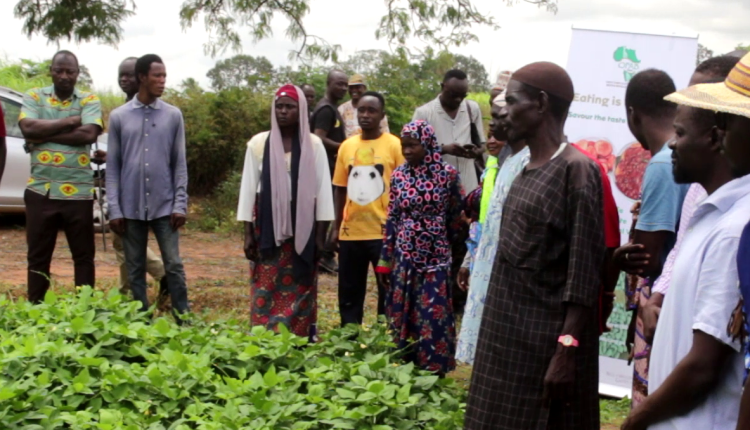Cowpea farmers have expressed confidence in the genetically modified BT cowpea developed by scientists at the Center for Scientific and Industrial Research (CSIR-SARI).
The farmers have praised the innovation and technology behind the BT cowpea, which has helped them control the Maruca pest, a major problem for cowpea farmers for decades.
One farmer, Adam Lansah who has been cultivating BT cowpea since 2024 reported a significant increase in yield compared to the conventional variety.
He also stated that his family has been consuming the BT cowpea without any health problems, contrary to claims by some individuals.
Another farmer, Abdulai Suweiba asserted that she has seen a major difference between PBR cowpea and the conventional cowpea because the number of times she used to spray has reduced.

It took scientists at CSRI-SARI for 12 years to develop the BT Cowpea which was released on 25th July,2024 as a commercial crop.
The BT cowpea was developed over a period of 12 years by scientists at CSIR-SARI. The crop was released commercially on July 25, 2024. Research Scientist and plant breeder, Dr. Gloria Adazebra, explained that the BT cowpea is designed to protect cowpea varieties against the Maruca pod borer pest, which has been a major challenge for farmers.
Dr. Adazebra noted that the use of BT cowpea has reduced the number of pesticide sprays from 8 to 2 times for a crop that matures in 12 weeks.
This reduction in pesticide use she noted can help minimize the environmental impact of farming and reduce costs for farmers.
She told journalists at SARI demonstration farms in Nynkpala, that BT cowpea intends to protect cowpea varieties against Maruca pod Borer, (PBR) pests which cowpea farmers have been battling with over the years.
Dr Gloria further explained that the number of times farmers spray has drastically reduced from 8 times to maximum two for a plant that matures in twelve weeks.
Dr Gloria explained that the team set up 15 trial farms in the five regions of the north and over 100 farmers managed trials to assess how the BT cowpea variety was performing.
The PBR BT cowpea she added was proven to be the only resistance to the PBR pest farmers over the years struggled to control. The BT cowpea was first released on 25th July,2024 as commercial and joins the community of countries that have commercialized biotech crops worldwide.
The crop, known as Songotra T, was developed under the PBR cowpea project -public-private partnership coordinated by the African Agricultural Technology Foundation (AAFTF), to promote technological innovations that will optimize cowpea productivity and utilization in Sub-Saharan Africa. Ghana’s annual demand for cowpea is estimated at 169,000 tons but the country only produces 57,000 tons annually.
This is because the average yield on farmers’ fields is below 1 ton per hectare, attributed mainly to destructive pests that feed on the crop on the farm.
Food Scientist with CSIR-SARI, Dr. Flora Christine Amagloh, assured that the genetic modification of the BT cowpea has not affected its nutritional value. She stated that the crop is a rich source of protein and food energy for humans and its leaves can be used as fodder for livestock.
Dr. Amagloh also assured that the sensory properties of the BT cowpea have not been affected by the genetic modification. The crop has undergone rigorous testing to ensure its safety and quality.
She explained that the genetic modification has not in any way affected nutritional value of the PBR cowpea and therefore there is no urtication. ’’It is as nutritious as the ordinary cowpea and the test of the PBR cowpea has not also change’’. The sensory properties of the PBR cowpea have not been affected, Dr Flora assured.


